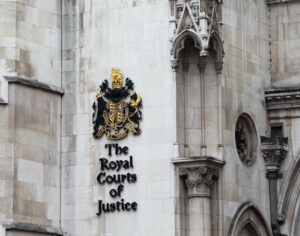Indian government chooses net neutrality over a Facebook backed scheme that would bring limited free Internet.
On Monday, the Telecom Regulatory Authority of India shot down Free Basics, a scheme that offers free Internet access to a limited number of websites, which includes selected local news and weather sites, the BBC, Wikipedia and some health sites. The plan is backed by Facebook and six tech companies: Samsung, Ericsson, MediaTek, Opera Software, Nokia and Qualcomm. Free Basics has been available in India since February, 2015 and remains available in 35 other countries.
The ruling is seen as a victory for net neutrality.
The plan, which works through an app and requires a cooperating telecom provider, is touted by its backers as a way to bring Internet access to the poor in third world countries. Launched as Internet.org in 2013, the name was changed to Free Basics last September. According Free Basics, the company has brought over 19 million people worldwide online who wouldn’t have been able to afford Internet service without it. About half that number have since signed-up for paid service.

While at first glace the plan might seem to be a good way to bridge the digital divide in the third world, critics say the program not only presents problems now, but has the potential to create even more problems down the road.
I agree. From where I sit, Free Basics is not a philanthropic effort by a group of visionary companies, as Zuckerberg would have us believe, but is a fox guarding the hen house. It’s also not about the poor, who are being used here as both guinea pig and sales tool. Nobody wants to deny Internet service to the poor, but this isn’t the way to do it.
The immediate issues surrounding the plan are obvious and include Free Basic’s preference of Facebook over other social sites, or of the BBC over, say, Al Jazeera or CNN. There are other problems as well, like having an authority hand-picking the information available to poor folks held captive by the free price, which just doesn’t smell right.
Indeed, the later point was noted by Indian regulators, who in a policy memo noted that programs such as Free Basics pose a problem for users because “knowledge and outlook … would be shaped only by the information made available by those select offerings.”
The World Wide Web Foundation, which supports the notion of universal Internet availability, would seem to agree. After Monday’s ruling, Renata Avila, a Global Campaign Manager for the foundation’s Web We Want initiative said, “We can’t create a two-tier Internet — one for the haves, and one for the have-nots.”
Down the road, the issues only grow, as the plan sets some dangerous precedents.
Internet service providers would like nothing better than to offer their services according to the cable TV plan with tiered pricing. They already do this where they can, with levels of broadband speeds as well as with metered and unlimited bandwidth plans. Free Basics opens the door for metered content as well.
It’s not hard to imagine that after a couple of years of Free Basics, and with folks in countries where it’s implimented getting so used to the idea of artificially selected content that they see it as the norm, that some ISP will make a new move to “help the poor.” Those who can’t afford access to the entire Internet could try the nominally priced “Expanded Free Basics” plan, offering access to the Web’s top fifty sites. For a little more, users might move up to a Bronze plan, offering a thousand sites, a Silver plan with 10,000 sites or Gold, with a million. The well off could stick with the Ultimate package that includes the entire Internet.
Monday’s ruling by the Telecom Regulatory Authority of India didn’t mention either Facebook or Free Basics by name, but seems to end the legality of what ISPs and mobile providers call “zero rating,” or content that is free or not metered, while making exceptions for emergency services, “or at times of public emergency.” The ruling also affects other “zero rating” services, such as Flipkart, a popular shopping app that’s offered with no data charges by some carriers.
The teeth in this ruling are primarily in public perception, as the penalties for violation are light: only 50,000 rupees (about $740) a day to a total maxiumum of 5 million rupees. The new regulation will be in effect for two years.
Although this might be seen as a backwards step in efforts to bridge the digital divide, the World Wide Web Foundation’s Avila sees it differently and offers what she thinks is a better approach to creating Internet access equality. “We call on companies and the government of India to work with citizens and civil society to explore new approaches to connect everyone as active users,” she said, “whether through free data allowances, public access schemes or other innovative approaches.”
Whether this will lead to similar actions in other countries where Free Basics is in use is not known.
We’re currently in the midst of our 2016 Indiegogo fundraising drive. Your support is crucial. Won’t you please visit our fundraising page and make a contribution to support FOSS Force?
Christine Hall has been a journalist since 1971. In 2001, she began writing a weekly consumer computer column and started covering Linux and FOSS in 2002 after making the switch to GNU/Linux. Follow her on Twitter: @BrideOfLinux












Excellent explanation of this issue. I was discussing this with my partner the other day. It’s so easy to applaud the idea of a “free of charge Internet” to bridge the global information gap (certainly a worthy goal). The question is who decides what parts of the Internet should be free!
Holy smokes. Maybe let the poors decide for themselves whether or not they want this service, rather than the Indian telecoms and upper castes.
This is the internet equivalent of disallowing certain types of agriculture in Africa that might be cheaper and pull millions out of starvation because it tweaks the wrong kinds of knobs and buttons with the types of people who can afford to have moral objections to Mark Zuckerberg.
I have no love for Facebook (I’m a conscientious objector on that front), but it’s MY choice, and it’s a choice I can afford to make.
This is nothing more than a different form of the same soft imperialism that those against free trade rhetorically claim to battle.
It’s Africa in a different sector. Even Bono has abandoned his similar pronouncements about the disaster that the West has perpetrated on that continent through agricultural policy. Now we (the well-off parts of the world) want to ape that for the Subcontinent’s poor?
If Zuckerberg wants to help the poor get internet access, then he should give them actual access…not a proprietary gateway into the net as Zuckerberg wants it to be.
I think the statement: “the company has brought over 19 million people worldwide online who wouldn’t have been able to afford Internet service without it. About half that number have since signed-up for paid service.” says pretty much all you need to know. It’s a sales and data mining tool. Nothing more.
I think forcibly eliminating an option is still forcibly eliminating an option, and borders on morally repugnant.